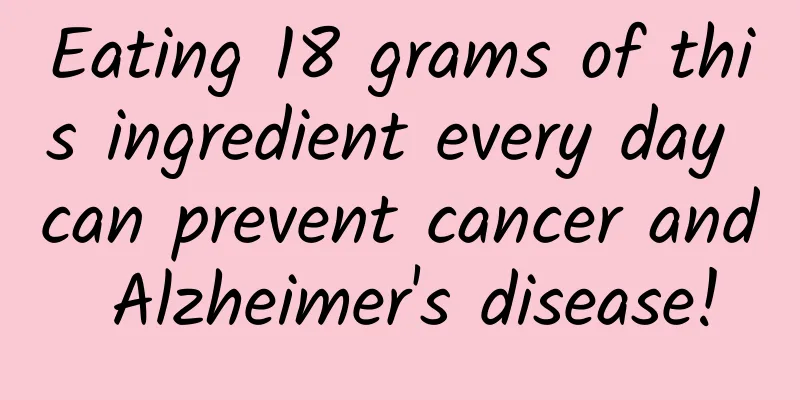|
May 17, 2023 is the 19th World Hypertension Day. The theme of this event is "Accurate measurement, effective control, health and longevity." As a common and frequently occurring disease worldwide, hypertension poses a serious threat to human health. Hypertension is a risk factor for cardiovascular and cerebrovascular diseases, the most common cardiovascular disease, and the most important risk factor for stroke and coronary heart disease . It is known as the "invisible killer" that affects human health. Who is at high risk of hypertension? 1 About 20% to 30% of hypertension is related to congenital genetic factors. It has obvious family "clustering" . When parents suffer from hypertension, the risk of their children also increases significantly.
At the same time, as age increases, the degree of arteriosclerosis increases and the risk of high blood pressure increases.
2 A high-sodium diet can increase blood pressure.
3 People who lack exercise, are overweight or obese . When you are overweight, physical activity requires more energy and the heart needs to pump more blood. The heavier you are, the greater your cardiac output and the higher your blood pressure.
4 People who smoke and drink excessively . Smoking and excessive drinking seriously damage cardiovascular health, can cause increased heart rate and blood pressure, and also reduce the sensitivity of hypertensive patients to antihypertensive drugs.
5 People who are under long-term mental stress . Psychological emotions are also an important factor affecting high blood pressure. People who have long-term anxiety, worry, stress, anger, panic and other tense emotions have a significantly increased risk of developing high blood pressure. Some misunderstandings about hypertension
Myth 1: If your blood pressure is high but you don’t feel it, it’s not a big problem?
According to the "Healthy China Action (2019-2030)", if the systolic blood pressure is ≥140mmHg and/or diastolic blood pressure ≥90mmHg measured three times on different days without using antihypertensive drugs, hypertension can be diagnosed.
Experts point out that the blood pressure of most patients with hypertension increases gradually, so they don't feel it obviously, but hypertension is constantly damaging the patient's blood vessels, heart, kidneys and other organs. If not treated in time, hypertension can lead to health problems such as stroke, myocardial infarction, kidney failure, and aortic dissection .
Myth 2: Young people will not suffer from high blood pressure?
High blood pressure can occur at any age . As you age, your risk of developing high blood pressure increases. It is important to note that if a parent or close relative has high blood pressure, you are also at risk of developing high blood pressure. However, by maintaining a healthy lifestyle every day, you can delay or even prevent high blood pressure.
Myth 3: If blood pressure is high in winter and normal in summer, can I reduce the dosage of medicine?
Blood pressure varies with the seasons, usually higher in winter and lower in summer. Especially for patients with mildly elevated blood pressure, their blood pressure will drop in the summer and can remain normal without taking antihypertensive drugs.
Zhang Weili, a researcher at the State Key Laboratory of Cardiovascular Diseases, Fuwai Hospital, Chinese Academy of Medical Sciences, said that if blood pressure is kept below 120 mmHg/80 mmHg by improving lifestyle and taking medication, and can remain stable for a few weeks, patients can reduce the dosage of medication under the guidance of doctors . However, patients should also pay attention to continuous monitoring of blood pressure, and seek medical attention in a timely manner if their blood pressure rises.
****Misconception 4: If blood pressure is already below 140/90 mmHg, **** can I stop taking the medicine? ****Experts suggest that patients should not stop taking the medicine on their own, but should strictly follow the doctor's advice to gradually reduce the dosage and observe . Normal blood pressure is the result of drug control, not that hypertension has been "cured". The key to blood pressure is control. Stopping the medicine on your own may cause blood pressure to rise again. Most patients with hypertension need to take medicine for life.
Myth 5: Is it better to lower blood pressure faster and lower?
Stable blood pressure can ensure good blood circulation in the human body and help protect the functions of the cardiovascular, cerebrovascular and renal target organs. Both high and low blood pressure will have a certain impact on the body, so lowering blood pressure faster and lower does not mean better and safer .
Myth 6: Do I need to measure my blood pressure regularly if I don’t have high blood pressure?
It is very important to measure blood pressure regularly, especially for people who have been diagnosed with hypertension. Hypertensive patients should measure their blood pressure 2 to 3 times in the morning and evening, and people with normal blood pressure should measure their blood pressure at least once a year . The public should record their blood pressure measurement results regularly to ensure that their daily blood pressure is controlled below 135/85 mmHg. People at high risk should measure their blood pressure regularly and receive health guidance from medical staff.
The "Healthy China Action (2019-2030)" proposes that adults aged 18 and above should regularly monitor their blood pressure, pay attention to changes in blood pressure, and control risk factors for hypertension; the public whose blood pressure is the normal high range of 120 to 139 mmHg/80 to 89 mmHg should pay attention to controlling risk factors as early as possible. How do patients with hypertension carry out their daily health care? 1
Reduce sodium and increase potassium, eat a light diet. Gradually reduce the daily salt intake of each person to less than 5 grams; increase the intake of potassium-rich foods. Eat a light diet and eat less high-fat and high-cholesterol foods.
2
Reasonable diet and scientific diet are important in "not harming the internal organs". Effective and reasonable Chinese medicine diet can help prevent and improve hypertension.
3
Balance eating and moving, healthy weight . It is recommended to maintain weight within a healthy range: body mass index (BMI) between 18.5 and 23.9 kg/㎡ (the weight can be increased appropriately for people over 65 years old); waist circumference of men < 90 cm, waist circumference of women < 85 cm. All overweight and obese hypertensive patients are advised to lose weight. Controlling weight includes controlling energy intake and increasing physical activity.
4
Quitting smoking and drinking, maintaining a balanced mentality and not smoking can reduce the risk of cardiovascular disease. It is strongly recommended that patients with hypertension quit smoking.
Don't drink alcohol, even small amounts can have adverse effects on your health. Excessive drinking significantly increases your risk of high blood pressure, and the risk increases with the amount you drink.
Reduce mental stress and maintain psychological balance. If necessary, go to a professional medical institution to avoid blood pressure fluctuations caused by mental stress. Maintain a regular work and rest schedule, ensure adequate sleep, and avoid staying up late.
5
Monitor blood pressure and manage yourself Monitor blood pressure regularly, understand blood pressure values and target status, follow doctor's advice for lifestyle intervention, adhere to long-term treatment, and manage yourself. You can choose an appropriate diet pattern according to your health status. Source: Healthy China, Health News, Chronic Disease Prevention and Health |
![[World Hypertension Day] Please keep this guide to fighting stress](/upload/images/67f1aeab31751.webp)









